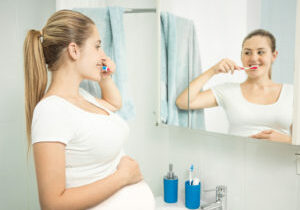According to the Academy of Pediatrics (AAP), fruit juice offers no nutritional benefits over whole fruit for infants and children and has no essential role in the healthy balanced diets of children. However, juice consumption has been linked to childhood obesity and childhood tooth decay.
As a result of these findings, the AAP made the following updated guidelines for juice consumption:
Birth through first birthday:
- Juice should not be introduced into the diet of infants until their first birthday unless prescribed by the pediatrician for a specific situation.
Toddlers age 1 – 3 years old:
- Up to 4 ounces per day
- As part of a meal or snack – never to be sipped on throughout the day
Children 4 – 6 years old:
- 4-6 ounces per day
- As part of a meal or snack – never to be sipped on throughout the day
Children 7 – 18 years old:
- 8 ounces or 1 cup of the recommended 2 to 2.5 cups of fruit servings per day.
- As part of a meal or snack – never to be sipped on throughout the day
Some of the other recommendations include only offering a toddler juice in a regular cup – never in a sippy cup, covered cup, or a baby bottle. When toddlers carry around a bottle, covered cup, or box of juice around throughout the day this leads to excessive exposure to carbohydrate and sugars that promote the development of tooth decay. Even though the sugars in juice are natural sugars, the bacteria that cause tooth decay can still use them to make the acids that cause cavities. The AAP also warns that diluting juice with water does not necessarily decrease the dental health risk. So if you are going to choose juice in accordance with these guidelines, even watered down juice should only be given at snack or meal times and never in a bottle or sippy cup. When appropriate, encourage consumption of whole fruit for fiber-intake benefits.
Talk with your pediatrician or pediatric dentist if you have questions about these new guidelines.



